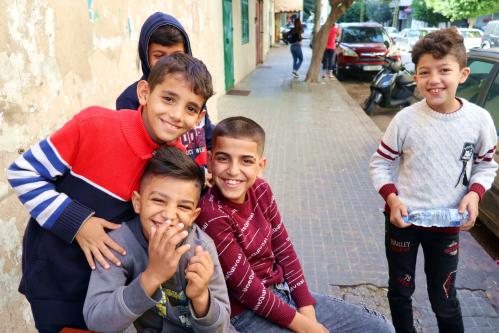

Explore the initiative:

The Center for Universal Education (CUE) at Brookings fosters collaboration and peer learning across jurisdictions and borders. Working closely with a range of partners across government, civil society, academia, and the private sector, CUE facilitates multiple networks, communities of practice, and peer-learning exchanges.
The Global Family Engagement in Education Network (FEEN) is a peer-learning network and community of practice that includes representatives from civil society and community organizations, government and education leaders, and research and higher education institutions from six continents. Civil society organizations include a range of parent and teacher organizations, international and national nongovernmental organizations, and community-based organizations. Some members of philanthropic or private sector institutions working on FSCE are also part of the FEEN. The FEEN convenes virtually every quarter to discuss ongoing research and topics on FSCE and to collectively elevate strategies that tackle barriers to engagement. Members share insights from their schools and communities and collaborate with each other on various FSCE efforts in their communities.
The Brazil Family Engagement in Education Network (Rede de Engajamento Famílias e Comunidades na Educação) is a regional network within the Global FEEN. The Brazil FEEN is a vibrant peer-learning space for organizations and education institutions with varying expertise and missions within the Brazilian education landscape and that have a shared goal for promoting social transformation and quality education. The Brazil FEEN co-leads collective activities and actions, such as collective research, developing and documenting FSCE strategies, and discussing and promoting knowledge and practices on FSCE in Brazil.
FSCE communities of practice and working groups are made up of representatives from organizations and learning institutions that convene around a common interest and topical area in family, school, and community engagement. Examples of communities of practice and working groups include:
CUE is committed to bringing collaborators and actors together toward common activities and goals to further FSCE policies and practices and education system transformation efforts in and between communities, countries, and global actors. Collective action includes:
Interested in learning more about CUE’s FSCE initiative or how to be involved? Email us at [email protected] to receive more information.
